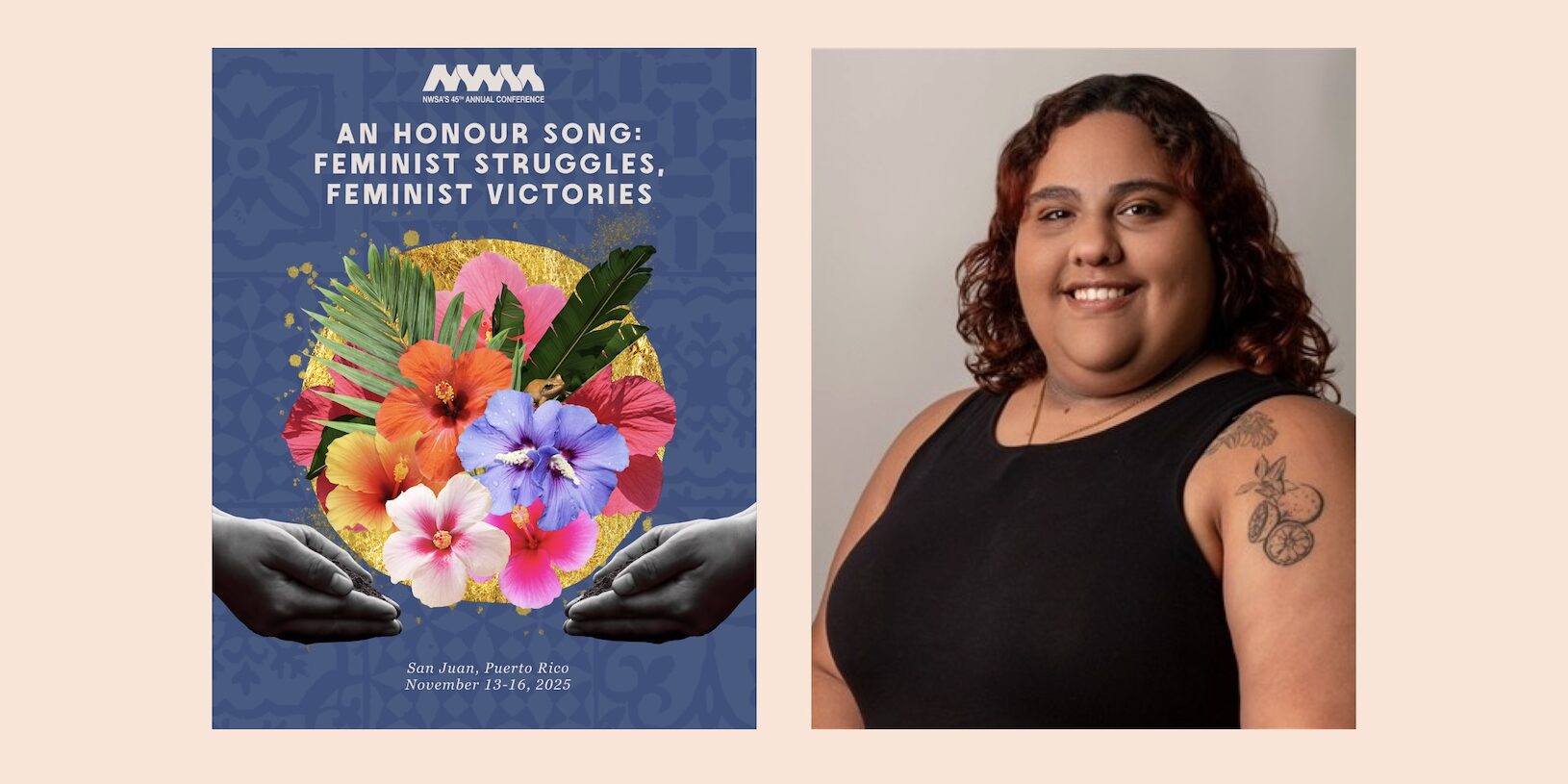OHL Research Associate Natalia Betancourt Malavé has been accepted into the 2025 Women of Color Leadership Project (WoCLP) cohort of the National Women’s Studies Association (NWSA).
The WoCLP is a year-long initiative that supports early-career faculty, graduate students, and activists of color in honing their leadership capacities and expanding their professional networks. Participants receive mentorship, engage in workshops, and connect with feminist, women’s, and gender studies leaders from across the country.
Betancourt Malavé aims to showcase AfroBoricua women, their knowledge of community building, and their culture through oral tradition. The preservation of African and indigenous culture through oral tradition is both a form of resistance against colonization and a source of empowerment for those who may recognize their oppression and seek liberation. Thus, Betancourt Malavé hopes that her contribution to this cohort will be a perspective on the collection of this knowledge and to position the upholding of these traditions as acts of resistance and restorative community care.
La asociada de investigación del Oral History Lab (OHL), Natalia Betancourt Malavé, ha sido aceptada en el Women of Color Leadership Project (WoCLP) de la National Women’s Studies Association (NWSA) para la cohorte del año 2025.
El WoCLP es una iniciativa de un año que apoya a profesoras, estudiantes graduadas y activistas de color en las primeras etapas de sus carreras, ayudándolas a fortalecer sus capacidades de liderazgo y ampliar sus redes profesionales. Las participantes reciben mentoría, participan en talleres y establecen conexiones con líderes en los campos de los estudios feministas, de la mujer y de género en todo Estados Unidos.
Betancourt Malavé busca destacar a las mujeres AfroBoricuas, su conocimiento sobre la construcción comunitaria y su cultura transmitida a través de la tradición oral. La preservación de la herencia africana e indígena mediante la oralidad constituye tanto una forma de resistencia ante la colonización como una fuente de empoderamiento para quienes reconocen su opresión y buscan su liberación. De esta manera, Betancourt Malavé espera que su aportación a esta cohorte ofrezca una perspectiva sobre la recopilación de este saber y reafirme la práctica de estas tradiciones como actos de resistencia y de cuidado comunitario restaurativo.






